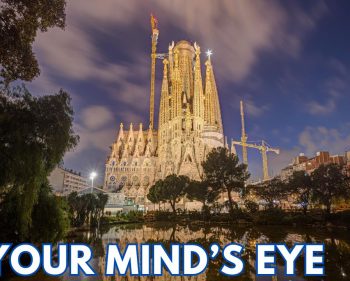WE MUST ALL BE TEACHERS

Based on teachings from Rabbi Jonathan Sacks z”l
There is no question that right now we are living in one of the most challenging periods in recent Jewish history. Anti-Semitism stalks our campuses, our streets, our social media feeds. Israel faces enemies on multiple fronts. Western countries are jumping over themselves to recognize a Palestinian state.
And perhaps most painfully, we watch as the next generation of Jews – raised in Jewish homes, who had their bar and bat mitzvas in synagogues, attended Jewish schools – stand with those who clamor to eliminate Israel and target Jews.
How exactly did we get here? How did we fail so spectacularly?
The late Rabbi Jonathan Sacks offers us a profound insight that cuts to the heart of our crisis. In his brilliant analysis of Moses’s final act of leadership, Rabbi Sacks shows us exactly where we went wrong – and more importantly, what we must do to fix it.
Picture Moses at the end of his life. Moses is the great liberator, the miracle worker, the man who split the Red Sea, the man who brought down the Torah from Sinai. But that is all in the past. He’s an old man now; his active leadership is over. It is his protégé, Joshua, who will lead the Jewish people into the Promised Land. Moses could have simply faded away, content with his extraordinary achievements.
But Moses didn’t do that. Instead, he did something that transformed not just his legacy, but our entire understanding of leadership itself. For the final 37 days of his life, he gathered the people together, and delivered the addresses we know as Deuteronomy – Devarim, which literally means “words.” Not commands. Not orders. Not “do this, go there.” Words. Words of explanation. Words of teaching. Words of why.
As Rabbi Sacks so beautifully puts it: “In the last month of his life Moses ceased to be the liberator, the miracle-worker and redeemer, and became instead Moshe Rabbenu, ‘Moses, our teacher.’”
Moses understood something we have forgotten: You cannot sustain a people on commands alone. You need to teach them. You need to educate them. You need to mentor them. You must give them the why.
Which brings me to a conversation I had just this week. Sabine and I were discussing parenting, and she told me something that should shake every Jewish parent to their core. She said that her parents – good Jewish parents, who cared for her, raised her Jewish, sent her to Jewish schools, modeled Judaism at home – never discussed world affairs or serious topics with her or her siblings.
Does that sound familiar? It was all about, “We’re going to shul.” “Don’t break Shabbat.” Make sure it’s kosher.” Commands, but without context. Instructions, but without inspiration.
This is the post-Holocaust Jewish parenting model, and – if we’re frank – it may have worked then, but it doesn’t work now. Our parents and grandparents, traumatized by the Shoah, determined to ensure that Judaism didn’t die with the six million killed by Hitler and the Nazis, thought they could protect us by not burdening us with the weight of Jewish history and the complexity of Jewish existence.
They gave us the what but never the why. They told us Israel was important but never really explained why it was important. They insisted that Jewish identity is very important, but never really articulated what made that identity worth preserving.
And now we’re paying the price. The next generation know that we feel strongly about Israel and Jewish identity – and maybe that’s precisely why some of them want to be different! They want to think for themselves, and having never really understood the why, they’ve invented their own why, and it doesn’t necessarily chime with ours. And maybe, when you give young people passion without explanation, fervor without foundation, they don’t see conviction – they see fanaticism.
The business leadership guru, Simon Sinek, teaches that transformative leaders “Start with Why.” And the early twentieth century aviator, Antoine Marie Jean-Baptiste Roger, the vicomte de Saint-Exupéry, wrote: “If you want to build a ship, don’t drum up the men to gather wood, divide the work, and give orders. Instead, teach them to yearn for the vast and endless sea.”
For the last five weeks of his life, Moses gave the Jewish people their why. In Deuteronomy, he painted the grand vision: You are God’s chosen people. You are the nation that testifies to something beyond yourselves. You may be small, but you are unique. Your story will defy the normal laws of history. Other nations will recognize the miraculous nature of your journey.
Our tragedy is that we have failed to give our children their why.
We never explained to them that Israel isn’t just another country – it’s the fulfillment of a 2,000-year-old dream.
We never explained to them that Israel is the answer to centuries of persecution.
We never explained to them that Israel the guarantee that “Never Again” means something.
And we never taught them that Jewish identity isn’t just tribal loyalty – it’s membership in a people that gave the world ethical monotheism, that survived every empire that tried to destroy it, that turns suffering into strength and exile into opportunity.
We never sat them down and explained why we cry at Yom HaShoah, why we dance at Yom Ha’atzmaut, why we fast on Tisha B’Av. We gave them the rituals but not the reasons. We gave them the practices but not the purpose.
As Rabbi Sacks notes, Judaism has always been ambivalent about leadership-as-power but unlimited in its reverence for leadership-as-teaching. Because “when someone exercises power over us, he or she diminishes us, but when someone teaches us, he or she helps us grow.”
David Ben-Gurion, secular though he was, deeply understood this Jewish principle of leadership. He said: “You must educate your party, and must educate the wider public… A political leader must spend a lot of time thinking. And he must spend a lot of time educating the public, and [then] educating them anew.”
Educating them anew. Not once. Not only when they’re young and compliant. Again and again, as they grow older, and question and challenge.
My friends, we are living through our own Deuteronomy moment. Like Moses, we face a generation that will inherit challenges we cannot solve for them. They will face anti-Semitism we cannot shield them from. They will need to defend Israel in ways we cannot imagine. They will carry Jewish identity into a future we cannot predict.
We cannot give them miracles. We cannot split seas for them. But we can do what Moses did: We can become teachers.
This is our sacred duty in these dark times.
We must sit with our children – not just our biological children, but the next generation of Jews – and explain. We must explain why Israel matters. We must explain why Jewish identity is precious. We must explain why our history is both tragic and triumphant. We must explain why our future depends on them understanding not just what we believe, but why we believe it.
And, most importantly, we must stop being afraid of difficult conversations. There’s no need to protect the next generation from complexity. And we must stop assuming they’ll just absorb our values through osmosis.
The Talmud teaches: “Let the fear of your teacher be as the fear of heaven.” Maimonides rules that respect for teachers should exceed even respect for parents, “because parents bring you into this world, while teachers give you entrance to the world to come.”
We, all of us, must become the teachers our people desperately need.
Not teachers who demand blind obedience, like disciplinarian parents – but teachers who inspire understanding. Not teachers who silence questions, but teachers who welcome them and provide answers rooted in wisdom, history, and love.
Moses knew that his greatest achievements might not last forever. Miracles are over once they’re done. The people he rescued would face exile and persecution again. So, as Rabbi Sacks puts it, “he planted a vision in their minds, hope in their hearts, a discipline in their deeds and a strength in their souls that would never fade.”
This is our task. This is our calling. This is how we honor Moses’s legacy and secure our people’s future.
The next time your child asks about Israel, don’t just say “it’s our homeland” – period. Explain the 2,000-year journey from destruction to rebirth. The next time they question Jewish identity, don’t just say “it’s who we are” – period. Share the story of a people that changed the world’s moral imagination. The next time they seem indifferent to Jewish suffering, don’t just demand their sympathy, or their fealty. Teach them how we transformed every tragedy into a source of strength.
As Rabbi Sacks concludes: “Teachers are the unacknowledged builders of the future, and if a leader seeks to make lasting change, he or she must follow in the footsteps of Moses and become an educator.”
The future of the Jewish people depends on whether we have the courage to become teachers instead of just commanders, and educators instead of just enforcers.
Our children are waiting. Our people are depending on us. And Moses, our teacher, has shown us the way.
The question is: Will we follow his lead? The answer is: We must!

